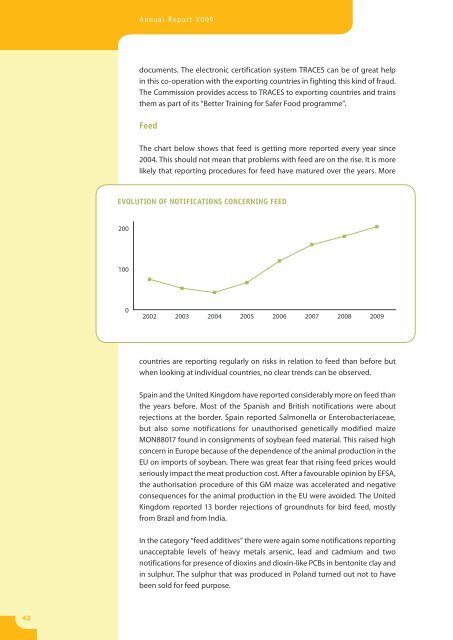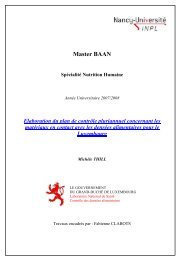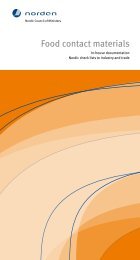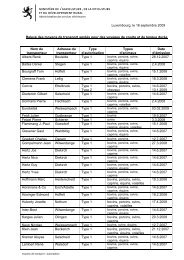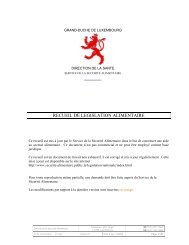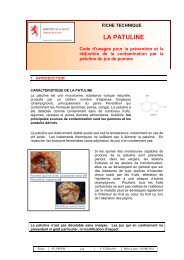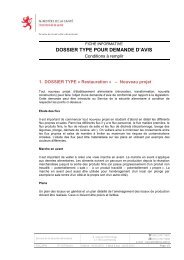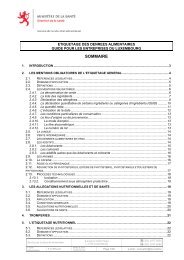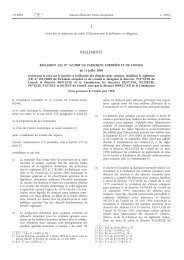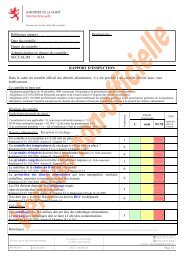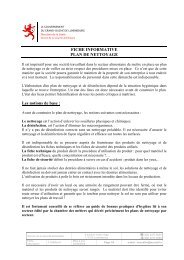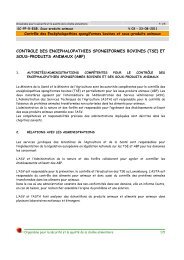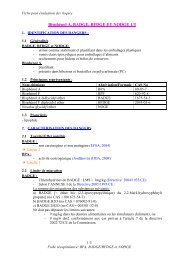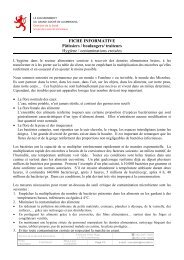(RASFF) Annual Report 2009 - European Commission - Europa
(RASFF) Annual Report 2009 - European Commission - Europa
(RASFF) Annual Report 2009 - European Commission - Europa
You also want an ePaper? Increase the reach of your titles
YUMPU automatically turns print PDFs into web optimized ePapers that Google loves.
<strong>Annual</strong> <strong>Report</strong> <strong>2009</strong><br />
documents. The electronic certification system TRACES can be of great help<br />
in this co-operation with the exporting countries in fighting this kind of fraud.<br />
The <strong>Commission</strong> provides access to TRACES to exporting countries and trains<br />
them as part of its “Better Training for Safer Food programme”.<br />
Feed<br />
The chart below shows that feed is getting more reported every year since<br />
2004. This should not mean that problems with feed are on the rise. It is more<br />
likely that reporting procedures for feed have matured over the years. More<br />
EVOLUTION OF NOTIFICATIONS CONCERNING FEED<br />
200<br />
100<br />
0<br />
2002 2003 2004 2005 2006 2007 2008 <strong>2009</strong><br />
countries are reporting regularly on risks in relation to feed than before but<br />
when looking at individual countries, no clear trends can be observed.<br />
Spain and the United Kingdom have reported considerably more on feed than<br />
the years before. Most of the Spanish and British notifications were about<br />
rejections at the border. Spain reported Salmonella or Enterobacteriaceae,<br />
but also some notifications for unauthorised genetically modified maize<br />
MON88017 found in consignments of soybean feed material. This raised high<br />
concern in Europe because of the dependence of the animal production in the<br />
EU on imports of soybean. There was great fear that rising feed prices would<br />
seriously impact the meat production cost. After a favourable opinion by EFSA,<br />
the authorisation procedure of this GM maize was accelerated and negative<br />
consequences for the animal production in the EU were avoided. The United<br />
Kingdom reported 13 border rejections of groundnuts for bird feed, mostly<br />
from Brazil and from India.<br />
In the category “feed additives” there were again some notifications reporting<br />
unacceptable levels of heavy metals arsenic, lead and cadmium and two<br />
notifications for presence of dioxins and dioxin-like PCBs in bentonite clay and<br />
in sulphur. The sulphur that was produced in Poland turned out not to have<br />
been sold for feed purpose.<br />
42


